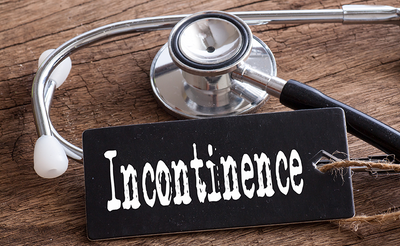A necessary evil
Outside the medical fraternity, cancer is often considered as one disease (“my father died of cancer last montha and so on) but it is, in fact, a hundred medical conditions rolled into one. Cancer affects different parts of the body in different ways, and its impact is felt in diverse ways. Cancer is also unusual from another standpoint. The disease itself and the various therapies that doctors would offer can both be responsible for urinary incontinence, both in men and women.
Impact of the disease
First, let us talk about cancer itself, the various types of cancer that can result in diminished ability to control urine passage. In men, the commonest cause is prostate cancer, but there are also cancers of the urinary bladder, the kidney, etc. In women, the same things can happen, apart from cancer of the uterus (womb), ovaries, and the cervix (lowermost part of the womb), all of which are located in close proximity to the urogenital organs.
Besides, in the article about female incontinence, we have seen how any abnormal pressure on the abdomen can cause a few drops of urine to trickle out of the system. This can be seen in elderly males as well but is more common in females. Now, this additional abdominal exertion can also be the consequence of repeated and violent bouts of a cough, which is a common symptom of lung cancer! That is how a form of cancer located far away from the lower abdomen can also affect one's toilet habits.
Likewise, it is not too difficult to imagine that tumours of the brain (affecting the personâs ability to feel the urge) or those of the spinal cord, which impairs the nerve supply controlling the urinary organs would make a person incontinent, at least to some extent.
Impact of the treatment
This is rather ironic because one of the first things that doctors are taught in the earliest stages of their medical training is: First, Do no harm! But very clearly, whichever great sage offered those words of advice did not have the treatment of cancer in his mind!
Now, how does that come about?
Following the same pattern as above, we must first look at surgery or radiation therapy in the region of the lower abdomen. Thus surgical removal of a cancer-affected prostate gland, or cervix and uterus (in women), ovaries, and urinary bladder or kidneys (in both males and females) are all potential reasons for an individual developing urinary incontinence as an aftermath. Even if the surgical procedure does not touch the urogenital organs, any handling of the nerves or blood vessels in that part of the body could potentially have a similar impact. This is particularly true of radiation therapy if it is not planned and designed with extreme care.
Even without that, some medicines used for the treatment of cancer have nausea and vomiting as a side effect, which needs the patient to exert a lot of abdominal pressure (a known cause of leakage of urine). Other cancer medicines or hormones can lead to damage to nerves all over the body (as it happens in diabetes) and excessive drying of the vaginal tissue, with increased urge to urinate as a common consequence.
A major illness like cancer exerts an adverse impact on the whole body, and urinary incontinence is just one part of that. It should therefore never be considered as a separate illness in addition to your form of cancer. Besides, the response to incontinence in various cancer patients might be very similar, even though the reasons might be diverse. Hence it might be useful to join a support group of similarly afflicted people, either online or through the hospital itself.
Additional reading:
Urology Care Foundation
knowyourstats.org
Patient-Centred Outcomes Research Institute
http://www.pcori.org/search/site/uterus%20cancer





